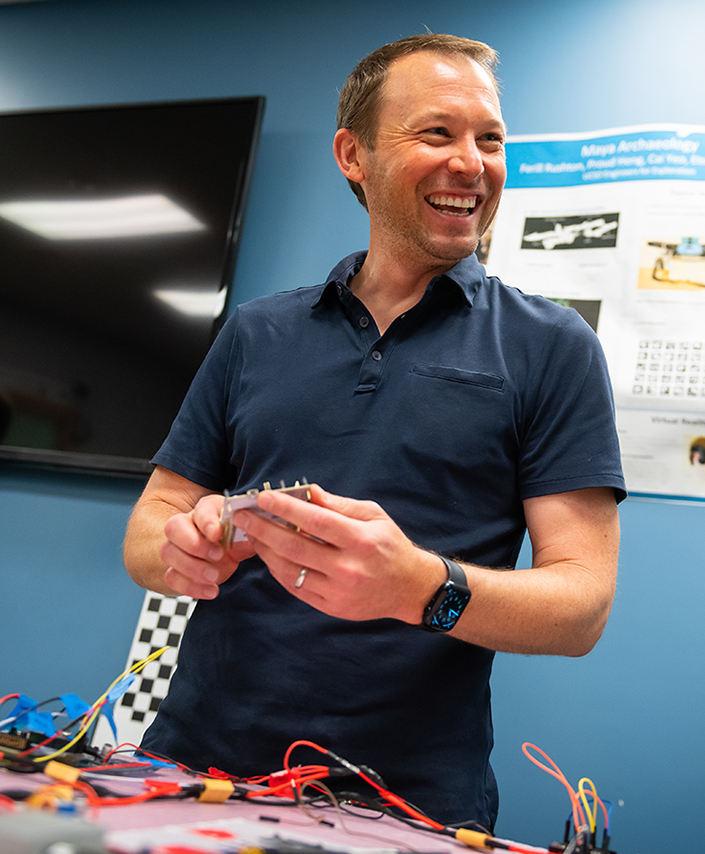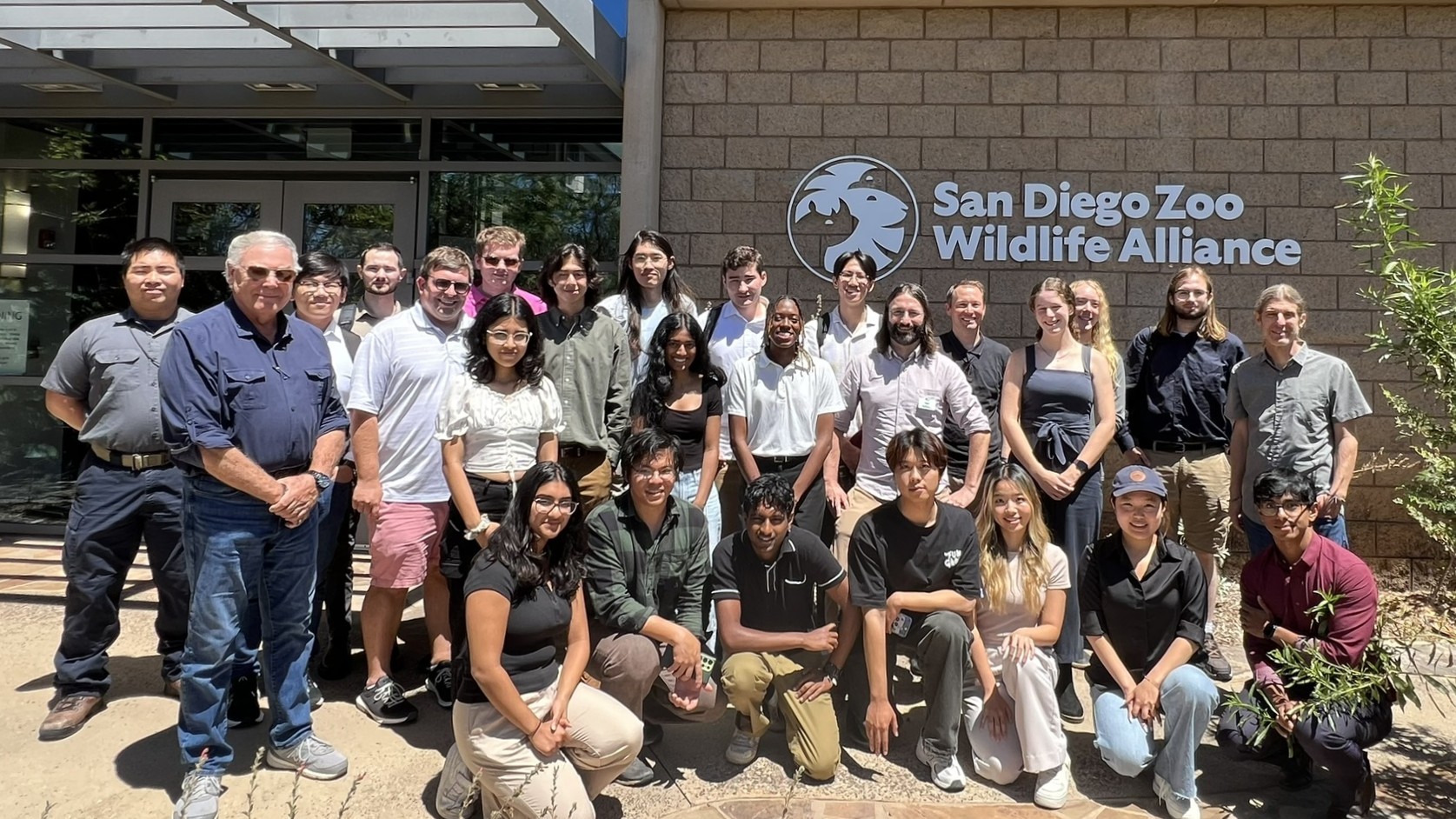Computer Science Professor Earns Undergraduate Mentorship Award for Going the Extra Mile, Literally
Story by:
Published Date
Story by:
Topics covered:
Share This:
Article Content
When Ryan Kastner was a first-generation undergraduate at Northwestern University, he was uncertain why his professors held the esteemed title “Dr.” Today, the University of California San Diego computer scientist has not only earned that designation but has also mentored more than 1,000 undergraduates and helped more than 100 go on to graduate school, with some earning that Dr. title in turn.
Kastner, a professor in the Jacobs School of Engineering’s Department of Computer Science and Engineering and an affiliate of UC San Diego’s Qualcomm Institute (QI), recently received the prestigious award for undergraduate research faculty mentoring from the Computing Research Association (CRA).
Each year, CRA recognizes two or three individual faculty members with the Undergraduate Research Faculty Mentoring Award for providing exceptional mentorship to undergraduates. Nominees are evaluated based on research experiences, guidance on graduate school, and matriculation of students to research-focused graduate programs in computing.
“Exceptional mentoring efforts like [his] are crucial to the health of the computing research pipeline,” wrote Danys Poshyvanyk, a Chancellor Professor of Computer Science at William & Mary, and Renee Bryce, a professor of computer science and engineering at University of North Texas, who are co-chairs of the 2025 CRA-E award committee.

Kastner is the co-founder and co-director of Engineers for Exploration (E4E), a program that pairs undergraduates with domain scientists from various disciplines to conduct collaborative research. Over the past decade, Kastner has led roughly 30 projects giving future engineers hands-on learning opportunities to tackle engineering challenges and deploy solutions in the field – all while protecting the environment and uncovering mysteries related to cultural heritage.
Mobilized by Kastner, students have gone on far-flung, boots-to-ground expeditions — such as treks to Guatemala to map tunnels at ancient Maya archaeological sites, a trip to remote Caribbean islands to track endangered species, and one to southern Jamaica to assess the rehabilitation of mangroves. Other teams have used drones, camera traps, and acoustic recorders to monitor animal behaviors – from the Peruvian Amazon’s Screaming Piha and Gulf of California’s playful vaquita to California’s striking condors.
“I think the students get a ton out of it,” Kastner said in a 2023 story about the E4E program. “These are real systems with users who are really keen to use them, develop the technologies, and get publishable data to better understand their scientific problems.”
Becoming a Professor and Mentor
Kastner recalls how he was a first-generation university graduate who knew nothing about research or what it meant to be a professor.
“When I started as an undergraduate, I had no idea what a professor was. I would look at the door cards of my university instructors and wonder why they were called ‘Dr.’,” Kastner said. “I was given an opportunity to do research based on my performance in an undergraduate class. That forever changed my life. I've been trying to give many people the same opportunity since becoming a professor."
Subsequent to the career-defining class called “Design Automation in VLSI,” or Very-Large-Scale Integration, Kastner completed joint bachelor’s degrees in electrical engineering and computer engineering and a master’s degree in engineering, all from Northwestern University. He then went on to earn that “Dr.” title at UCLA before joining UC San Diego as a professor in 2007.

Kastner’s work focuses on various applied problems which include analyzing security vulnerabilities for on-chip communication protocols and repurposing old smartphones into servers to minimize carbon. As part of an international collaboration, Kastner is developing algorithms to filter data for the vast and complex Large Hadron Collider (LHC) located at the European Organization for Nuclear Research (CERN). He has published over 200 technical articles and authored four books.
Kastner is the first CRA-E Undergraduate Research Faculty Mentoring Award recipient from UC San Diego since its inception in 2016, joining a small and esteemed cohort of past honorees.
I was given an opportunity to do research based on my performance in an undergraduate class. That forever changed my life. I've been trying to give many people the same opportunity since becoming a professor.
You May Also Like
New Research Debunks Fears of Supermarket Surge Pricing with Electronic Shelf Labels
Business & EconomicsStay in the Know
Keep up with all the latest from UC San Diego. Subscribe to the newsletter today.



